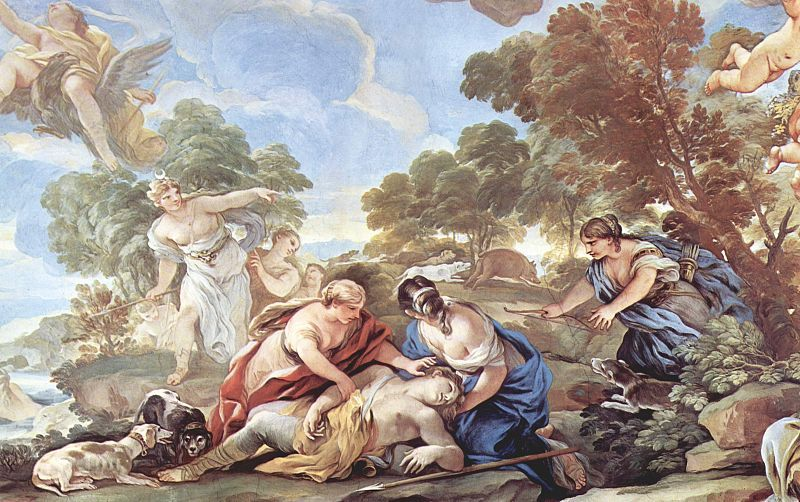+86-13516938893
Menu
global purchase
Aphrodite, the goddess of love and beauty in Greek mythology, emerged from the sea's foam, embodying both the grace of the countryside and the sophistication of the city. Though bound in marriage to Hephaestus, the unattractive god of craftsmanship, she took many lovers—among them the incomparably beautiful Adonis.

Adonis was born of Princess Myrrha of Cyprus, nurtured by nymphs in a cradle of myrrh resin, his extraordinary beauty destined to captivate even the divine. By chance, the arrow of Eros, the youthful god of desire, grazed Aphrodite’s heart, igniting her passion for the mortal youth.
Forsaking her celestial home on Mount Olympus, Aphrodite descended to the mortal realm, disguising herself as a huntress to remain by Adonis’s side. Together, they roamed forests and meadows, their days filled with laughter and stolen moments of bliss. Yet Aphrodite, ever fearful for his safety, warned him against hunting fierce beasts like lions and wolves. Adonis, emboldened by youth, dismissed her concerns with careless amusement.
One fateful day, as Aphrodite departed for Olympus, Adonis pursued a wild boar his hounds had roused. His arrow struck true, but the enraged beast turned upon him, its tusks piercing his side. As his lifeblood soaked the earth, Aphrodite sensed his peril and rushed back—only to find her beloved lifeless.

Grief-stricken, the goddess anointed his spilled blood with divine nectar. Where it touched the ground, crimson anemones blossomed, their fleeting blooms a testament to ephemeral love. Some say their mingled blood also stained white roses red, forever linking the flower to passion’s fire. Though mortal life had left Adonis, each spring he returned in floral form to reunite with his goddess. Thus, the red rose became Aphrodite’s sacred emblem—an eternal symbol of love’s triumph over death.
